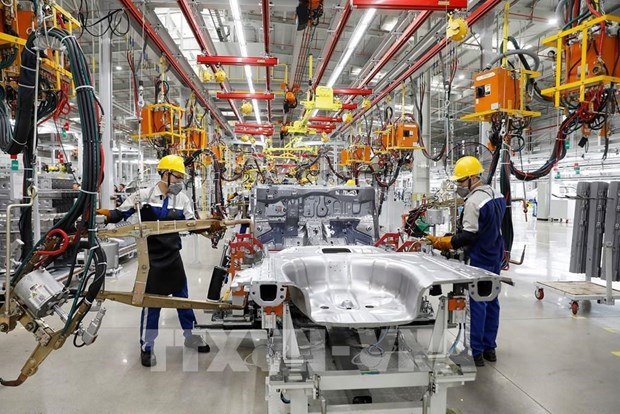
S&P Global reported that manufacturers faced a renewed reduction in new orders during November, thereby ending a three-month sequence of growth. The pace of decline was the highest since May 2023.
It said that weaker customer demand was reportedly behind the fall in new orders. Waning demand extended to international customers as new export orders decreased for the first time in four months. With new orders falling and economic conditions challenging, firms scaled back production again. Output has now decreased in each of the past three months. Moreover, the rate of contraction accelerated sharply and was the most pronounced since May, according to the report.
It said that cost pressures picked up again midway through the final quarter of the year. In turn, firms raised their own selling prices for the fourth successive month.
Falling new orders, reduced production requirements and a further drop in backlogs of work meant that manufacturers looked to scale back their purchasing activity and employment in November.
Staffing levels decreased modestly following a fractional improvement in October, with workforce numbers having now been reduced in eight of the past nine months. Meanwhile, a slight fall in purchasing activity ended a three-month period during which input buying had been growing solidly.
Firms also expressed a reluctance to hold inventories amid demand weakness.
Although firms expect output to rise over the coming year amid hopes for an improvement in new orders, business confidence dipped for the second consecutive month and was below the series average. Firms expressed worries about the fragility of economic conditions and international demand weakness, according to S&P Global.
Andrew Harker, Economics Director at S&P Global Market Intelligence, held that demand weakness, both domestically and in international markets, led to retrenchment across the Vietnamese manufacturing sector in November. With new orders down, firms scaled back their production, employment and purchasing activity, plus limited inventory holdings.
The renewed fall in new orders was in part attributed to some resistance among customers to price rises. With firms' own input costs increasing to the largest extent since February, it may prove challenging for manufacturers to price competitively in the months ahead, he said, adding that the sector therefore looks set to head into 2024 in pretty subdued fashion, hoping for a pick-up in demand conditions to occur soon./.VNA